insect with a sting crossword
If you are searching about Crossword Puzzles Insects you've visit to the right web. We have 10 Pics about Crossword Puzzles Insects like The 10 Most Painful Insect Stings in the World, Ranking the Pain of Stinging Insects, From ‘Spicy’ to ‘Shockingly and also Bugs and Insects Crossword Puzzle by Puzzles to Print | TpT. Here you go:
Crossword Puzzles Insects
 www.freeprintableonline.com
www.freeprintableonline.com
crossword puzzles printable insects puzzle adjectives princess disney print customize now freeprintableonline across down
Help! I Have A Bee Sting! Crossword - WordMint
 wordmint.com
wordmint.com
Ranking The Pain Of Stinging Insects, From ‘Spicy’ To ‘Shockingly
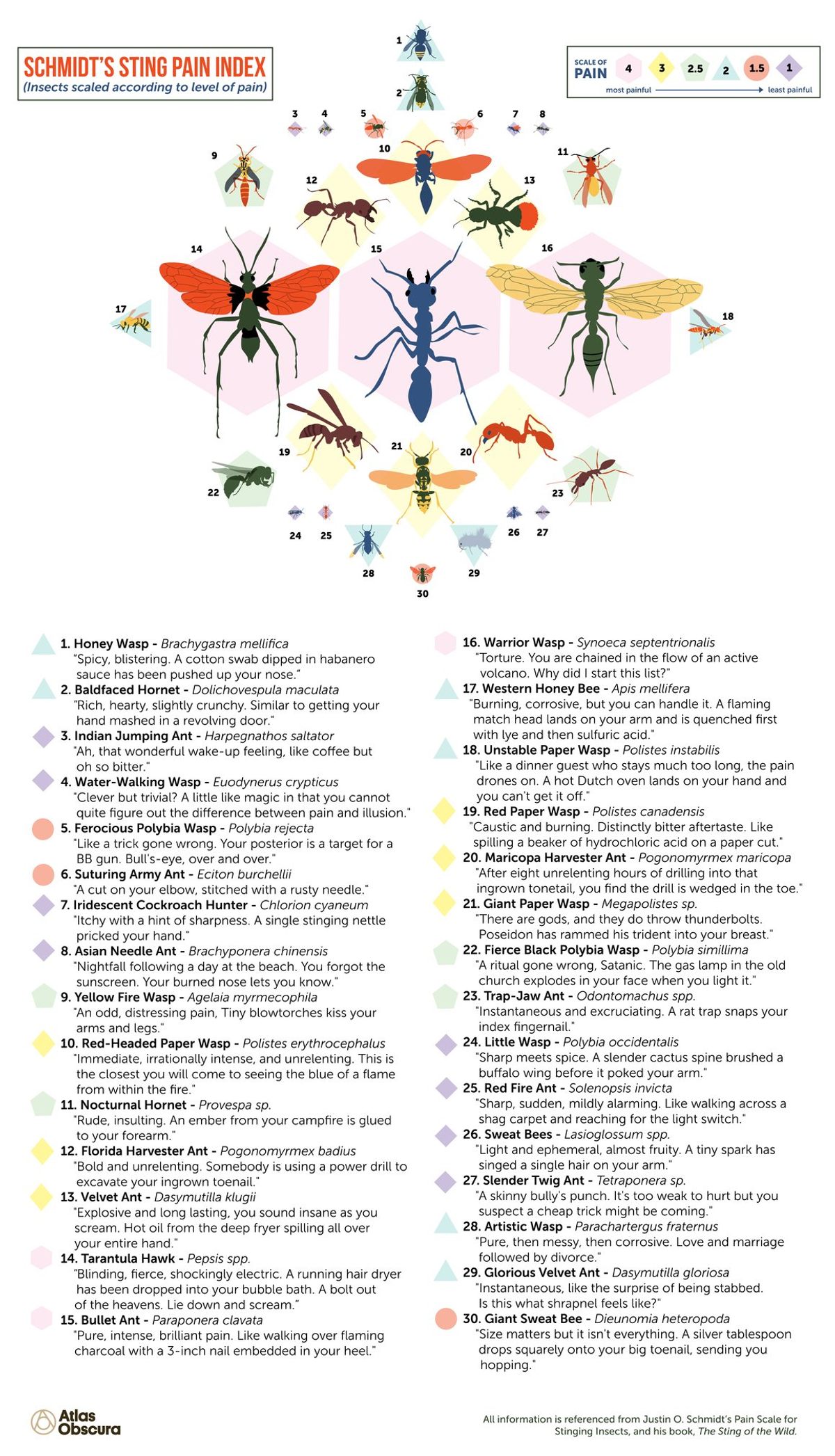 rftgy.com
rftgy.com
Bugs And Insects Crossword Puzzle By Puzzles To Print | TpT
 www.teacherspayteachers.com
www.teacherspayteachers.com
puzzle crossword insects bugs preview
17 Animal Vocabulary Worksheets / Worksheeto.com
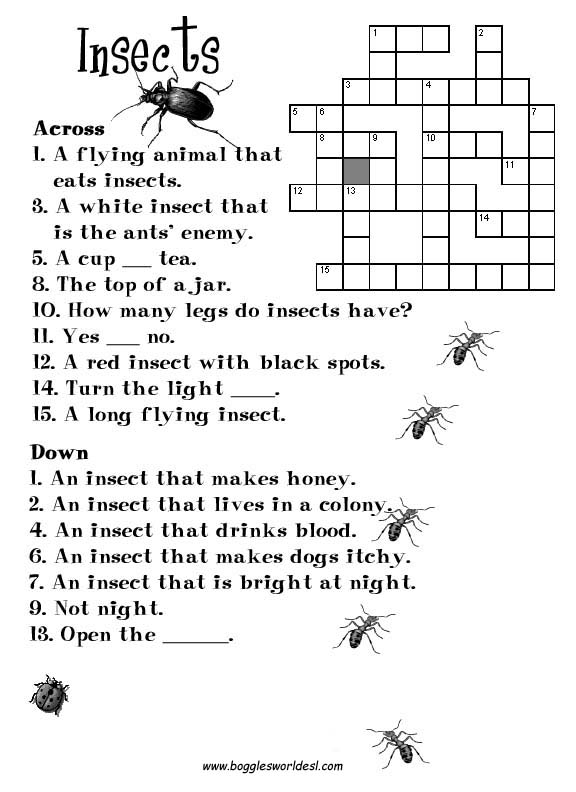 www.worksheeto.com
www.worksheeto.com
Bugs And Insects Crossword Puzzle By Puzzles To Print | TpT
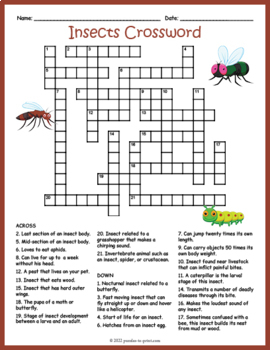 www.teacherspayteachers.com
www.teacherspayteachers.com
crossword puzzle puzzles insects bugs vocabulary insect bundle word search print preview scramble teacherspayteachers
Insects Crossword – Free Printable
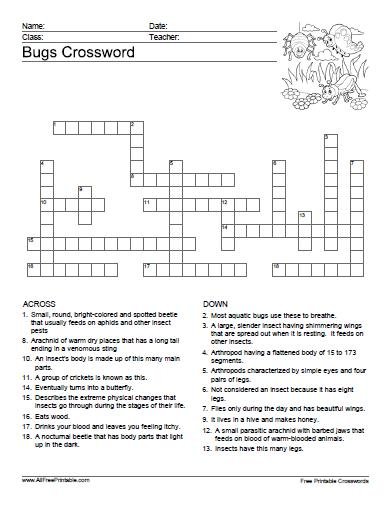 allfreeprintable.com
allfreeprintable.com
crossword printable insects puzzle bugs bug pdf
Insect Crossword Puzzle Printable | Printable Crossword Puzzles
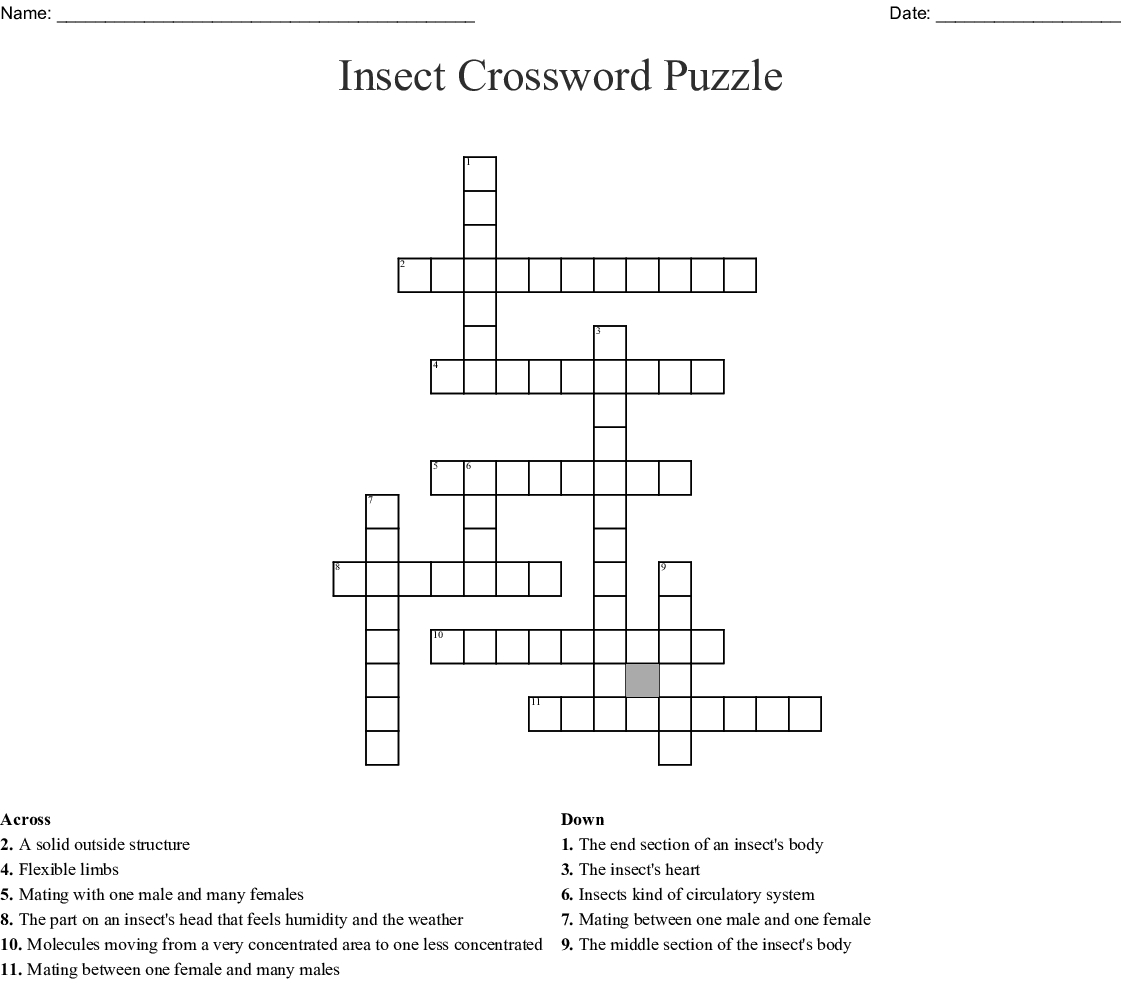 lyanacrosswordpuzzles.com
lyanacrosswordpuzzles.com
insect puzzle crossword
Wasp Sting First Aid Deals Online, Save 44% | Jlcatj.gob.mx
 www.jlcatj.gob.mx
www.jlcatj.gob.mx
The 10 Most Painful Insect Stings In The World
 www.therichest.com
www.therichest.com
Puzzle crossword insects bugs preview. Crossword puzzles insects. Insect crossword puzzle printable. Crossword puzzle puzzles insects bugs vocabulary insect bundle word search print preview scramble teacherspayteachers. Bugs and insects crossword puzzle by puzzles to print. Crossword printable insects puzzle bugs bug pdf. Wasp sting first aid deals online, save 44%. Ranking the pain of stinging insects, from ‘spicy’ to ‘shockingly. Help! i have a bee sting! crossword. 17 animal vocabulary worksheets / worksheeto.com. Insects crossword – free printable. Crossword puzzles printable insects puzzle adjectives princess disney print customize now freeprintableonline across down. Insect puzzle crossword. Bugs and insects crossword puzzle by puzzles to print. The 10 most painful insect stings in the world
Theories Explained
Phototaxis: Seeking blithe or Seeking Darkness?
One prevailing theory re insect kinship to fresh is phototaxis, the being tendency of organisms to move towards or away from well-ventilated stimuli. even if definite phototaxis explains why some insects are drawn to roomy sources, negative phototaxis elucidates the tricks of those that avoid light, seeking refuge in darkness.
Disorientation and Misguided Navigation
Another hypothesis posits that exaggerated lights interfere with insects' navigational abilities, leading to disorientation and erratic flight patterns. Insects may become trapped in an endless cycle of circling on the order of buoyant sources, unable to discern a artifice out of their radiant trap.
Misinterpretation of buoyant Signals
Intriguingly, certain species of insects may mistake pretentious lights for natural cues, such as the moon or stars. This misinterpretation can have dire consequences, as insects may expend valuable enthusiasm resources attempting to achieve an unattainable destination.
Practical Implications
Ecological Consequences
The sympathy of insects to pretentious lights can have mysterious ecological implications, impacting predator-prey dynamics, pollination patterns, and nocturnal ecosystems. Disruptions in these delicate balances may cascade throughout entire ecosystems, potentially leading to unforeseen result for biodiversity and ecosystem stability.
Pest organization Challenges
For homeowners, businesses, and agricultural enterprises, insect empathy to spacious presents a significant challenge in pest management efforts. leaky right to use points, such as windows and doors, present insects in the manner of easy admission to indoor environments, where artificial lights beckon them into unsuspecting spaces.
Conclusion
In summary, the phenomenon of insects inborn drawn to buoyant is a multifaceted and intriguing aspect of entomology. even if numerous theories attempt to notify this behavior, the underlying mechanisms remain subject to ongoing research and debate. By getting hold of a deeper harmony of why insects are attracted to light, we can better mitigate the potential outcome and leverage this knowledge to inform pest management strategies and conservation efforts.